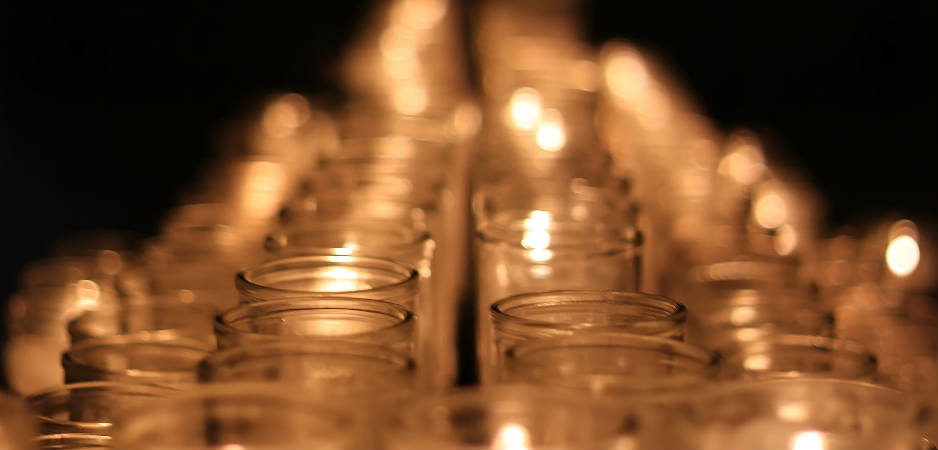Muslim Americans have been robbed of the ability to grieve because they have been on the defensive in the name of their religion.
The buzzing of news alerts of the Orlando massacre woke me up Sunday morning, nearly an hour before I usually wake to have my usual 3 a.m. meal before beginning my fast during this holy month of Ramadan. While at the time it was not immediately known who, or why, would massacre dozens of people gathering in celebration of Gay Pride in Orlando, Florida, it quickly became apparent that the man—29-year-old Omar Mateen—was by all accounts deranged, hateful and, as it turned out at the last minute, a sympathizer of the so-called Islamic State (IS). Once the latter point became known, it turned into the focal point of the conversation surrounding the attacks.
As a community was desperately mourning the senseless slaughter of its members, the conversation was hijacked by politicians clamoring to posture themselves as the staunchest on national security. In an effort to do so, Muslims, and Islam, were villainized with the hope that it could feed a greater narrative of how Islamic extremism is the sole evil that plagues this great nation. Yes, Islamic extremism in many circumstances has robbed Americans of the safety that they are entitled to. However, this also includes so many Muslims.
What is most upsetting about the commentary following the Orlando shootings is that it was so quickly politicized, that there was no consideration given to the parents who had just lost children, the community that was robbed of its safety and security, or the millions of Americans who wanted to mourn the profound loss without the premature insertion of political banter.
As a Muslim, I am disgusted by the vitriol being spewed about the religion and its followers, as if the actions of some speak for the masses. But primarily, I am furious that I, and other Muslim Americans, have been robbed of the ability to grieve the devastating loss of our fellow Americans because we have been on the defensive in the name of our religion.
At a time when the United States needs unity and consideration most, Americans should not reach for hate of their neighbors because of their religion: They, too, are American, and hurting all the same.
Politics, the campaign cycle and the general one-upmanship of social media created a firestorm that laid blame on religion for the scorched-earth massacre and not on the actions of one man, the epidemic of gun violence in the US or rampant homophobia. At a time when the United States needs unity and consideration most, Americans should not reach for hate of their neighbors because of their religion: They, too, are American, and hurting all the same.
I anguish over the idea that politics will someday force my future children to look at their parents, me—an Iraqi-American Muslim—and my husband—an American non-Muslim—the same way that I now look at my parents—one Sunni and one Shia—with amazement that they were able to come together despite their differences. Current revelations that capitalize and politicize the differences in sects or religions, robs me, and potentially my future children, of the idea that at one point unions were built on the mutual admiration and respect of religious differences, not in spite of them.
The logic behind coming to terms with the tragedy that unfolded on Sunday cannot be that the answer to one community being robbed of safety and security due to hate is to do the same onto another. In 2016, it should already be clear that America’s diversity is its strength. When tragedies like the Orlando attack happen, all Americans should band together and mourn the profound loss without being diverted into a tired and uncreative spiral of who is to blame.
The views expressed in this article are the author’s own and do not necessarily reflect Fair Observer’s editorial policy.
Photo Credit: zoonyzoozoodazoo / Flickr
 We bring you perspectives from around the world. Help us to inform and educate. Your donation is tax-deductible. Join over 400 people to become a donor or you could choose to be a sponsor.
We bring you perspectives from around the world. Help us to inform and educate. Your donation is tax-deductible. Join over 400 people to become a donor or you could choose to be a sponsor.
Support Fair Observer
We rely on your support for our independence, diversity and quality.
For more than 10 years, Fair Observer has been free, fair and independent. No billionaire owns us, no advertisers control us. We are a reader-supported nonprofit. Unlike many other publications, we keep our content free for readers regardless of where they live or whether they can afford to pay. We have no paywalls and no ads.
In the post-truth era of fake news, echo chambers and filter bubbles, we publish a plurality of perspectives from around the world. Anyone can publish with us, but everyone goes through a rigorous editorial process. So, you get fact-checked, well-reasoned content instead of noise.
We publish 2,500+ voices from 90+ countries. We also conduct education and training programs
on subjects ranging from digital media and journalism to writing and critical thinking. This
doesn’t come cheap. Servers, editors, trainers and web developers cost
money.
Please consider supporting us on a regular basis as a recurring donor or a
sustaining member.
Will you support FO’s journalism?
We rely on your support for our independence, diversity and quality.






